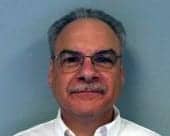BMET Education and Training
 When I first got involved with the training of biomedical personnel the task was very simple. Take a person with some electronics knowledge; give them a course or two in physiology and another course or two in instrumentation. This worked well for many years but now it cannot meet the needs of our profession. While medical instrumentation has progressed to the point that it is not usually cost effective to do component level troubleshooting and repairs in the field, we have not made that change in many of our training programs. Basic electronics is still needed, but additional skills are more needed with present day equipment.
When I first got involved with the training of biomedical personnel the task was very simple. Take a person with some electronics knowledge; give them a course or two in physiology and another course or two in instrumentation. This worked well for many years but now it cannot meet the needs of our profession. While medical instrumentation has progressed to the point that it is not usually cost effective to do component level troubleshooting and repairs in the field, we have not made that change in many of our training programs. Basic electronics is still needed, but additional skills are more needed with present day equipment.
A BMET today must have a working knowledge of electronics, computers, chemistry, infection control, finance, networks and most of all, communication with other humans. We are not like the turbo nerds in IT departments. We actually talk to, and listen to, living humans who are more concerned about patients, diagnoses and cost then the technology at hand. The BMET is a unique person who understands many technologies, understands how they work together and how they interact with a living person. Our world is not virtual reality but actual reality. Still, most of the training programs push the virtual instead of the actual. No program should graduate a student without requiring that person to go through a clinical extern/internship in a hospital — not a company, not field service on a few products, but in a hospital where the student is exposed to several thousand devices.
We are few in number. Worldwide, there are probably between 10 and 20 thousand of us, serving the needs of 6 billion people. In many ways we are the gatekeepers of the technology applied to patients daily. We get involved with everything from the stethoscope to the SPECT, and we are expected to know everything about anything that falls under umbrella of our profession. This is a tall order, but we do it and we must do it well.
Compare our track record for mistakes that injure others to the record of other licensed healthcare professions. We look very good. Others in healthcare would be thrilled to enjoy our liability insurance rates, but not our pay scale. The traditional way to gain a higher pay grade is to specialize — learn more and more about less and less. But when technology changes, the specialist either can not or will not change with it. Many wind up out of the profession. (Or worse, as the editor of a magazine!)
We cannot rest on past accomplishments. We must improve our skills and image in several ways, beginning with on-going training. It doesn’t require high-cost service schools. Like other professionals in the medical, education and legal fields, we should attend 1 or 2 day classes several times a year. There should be a registry of these education programs so the quality of the training can be monitored along with the benefits. And we need letters, such as “CBET”, after our names.
Biomeds need to communicate with decision makers in the hospitals — proactively not re-actively — yet biomeds get little or no writing or speaking training.
At Technology in Medicine, we are launching a series of training programs for our staff, and we are opening many of them to area biomeds. We will cover basic material, but there will be heavy stress on communication skills. We will provide CEU’s (continuing education units) for the courses, just like the other professions.
Yet I am hearing excuses from biomeds who do not want to attend. “I am too busy to leave the hospital for the class.” “I already know that topic.” “I’m behind on the work here and cannot spare the time.”
Maybe some of us older dogs are afraid to learn new skills. Maybe some of the younger ones don’t want to reveal that they don’t know everything. Whatever the case, these education programs are moving forward and people are attending them. Just remember this advice if you decide to create a similar program, design it for current needs, not what was needed years ago.
Finally, I am frustrated at how few of our kids follow us into this profession. Other professionals mentor their children to join them in their chosen professions, why shouldn’t we?
Veteran clinical engineer and 24×7 contributing editor David Harrington is the Director of Special Projects for Technology in Medicine, Inc. of Holliston, Mass.


